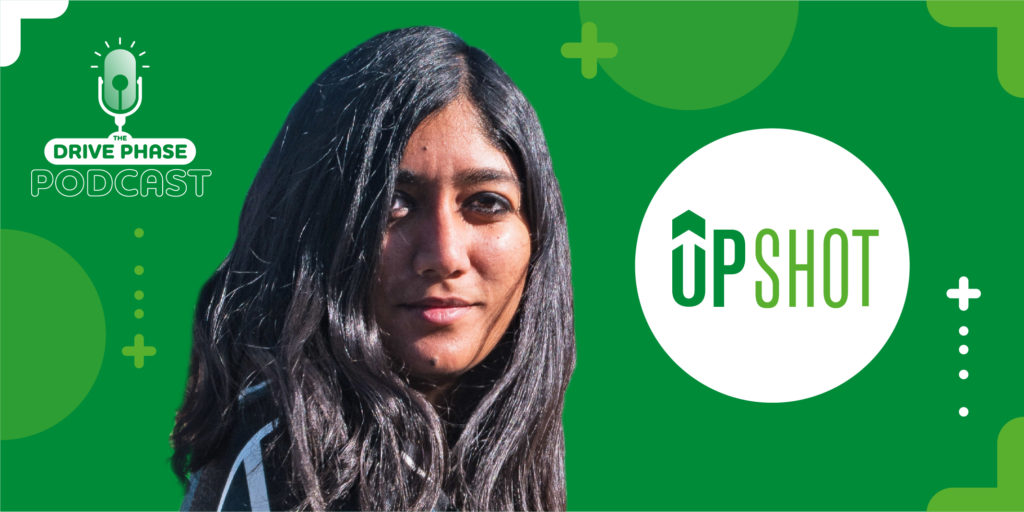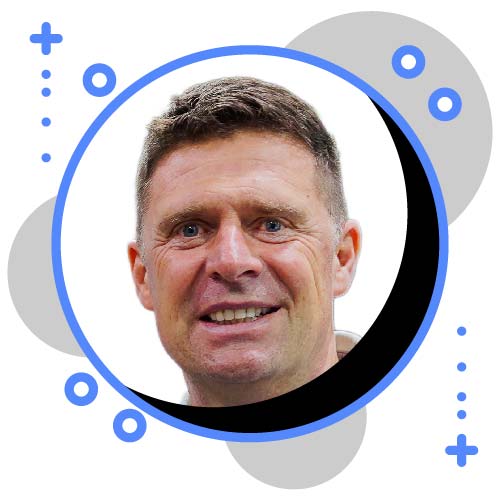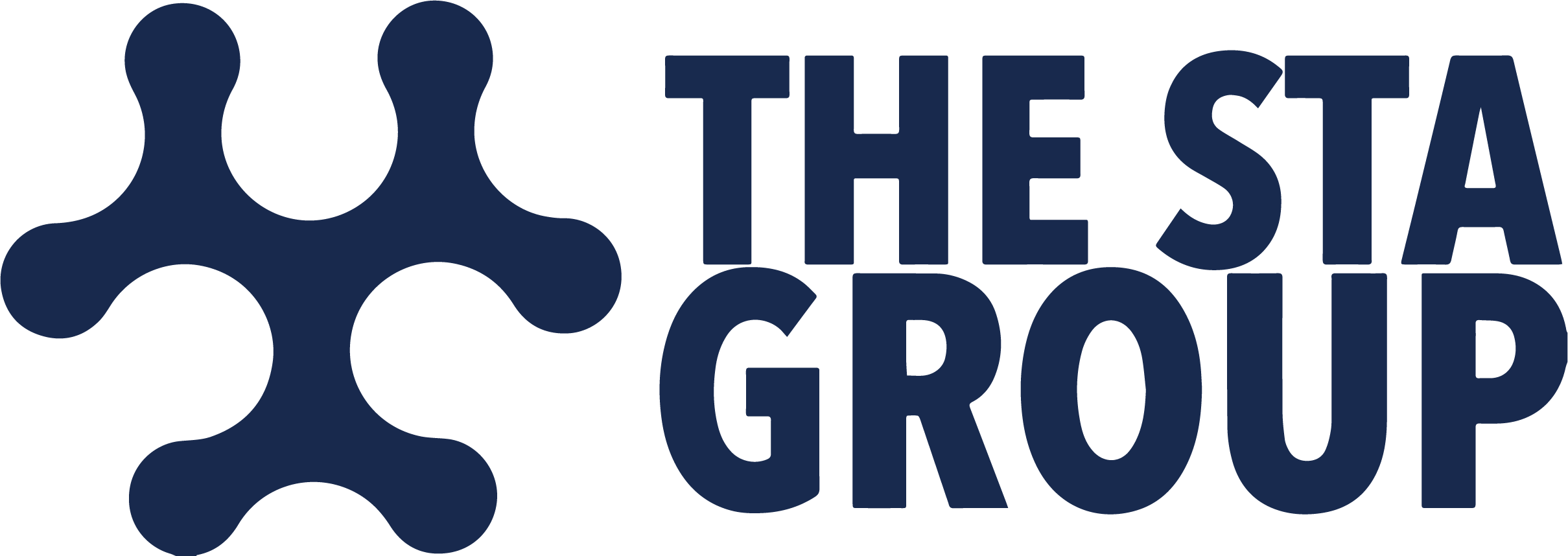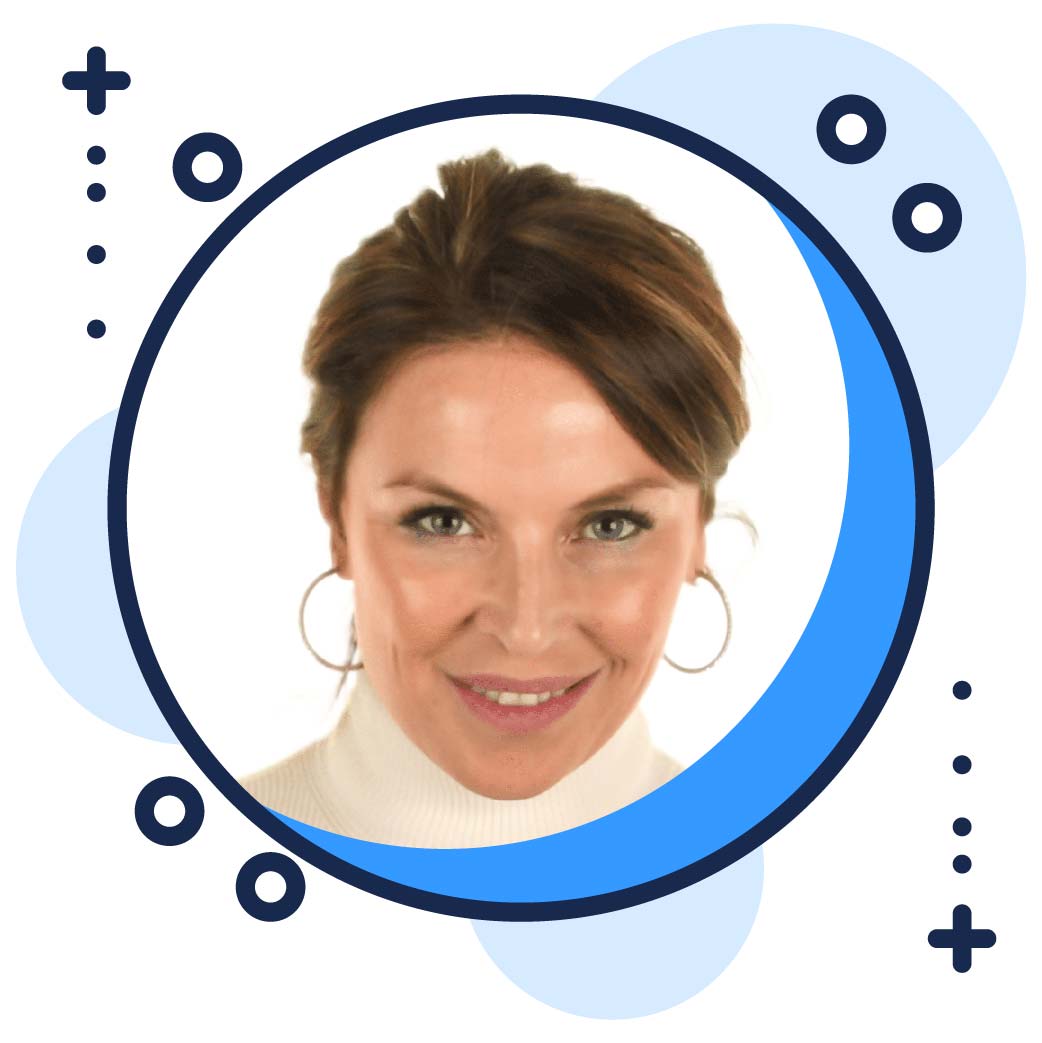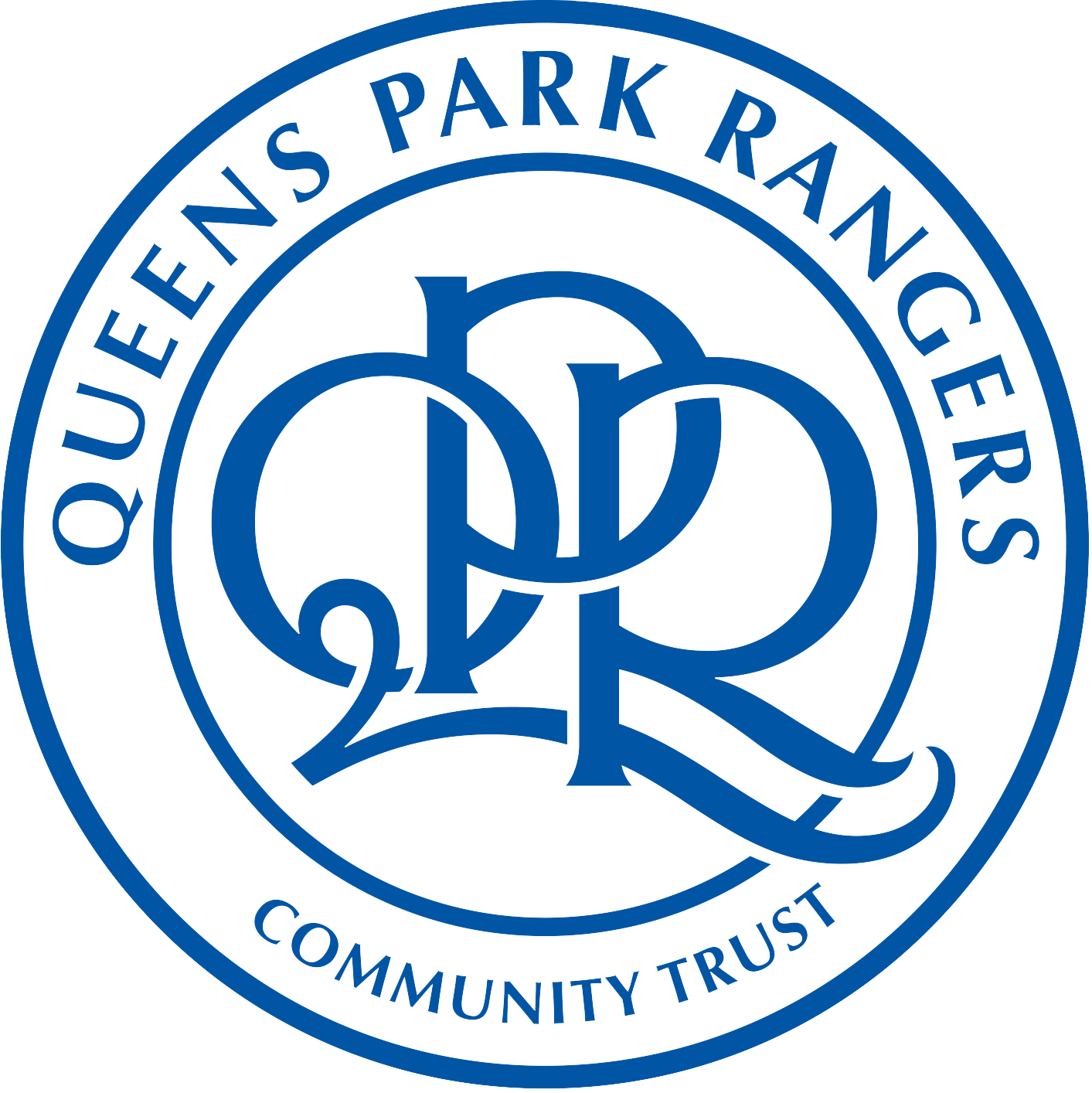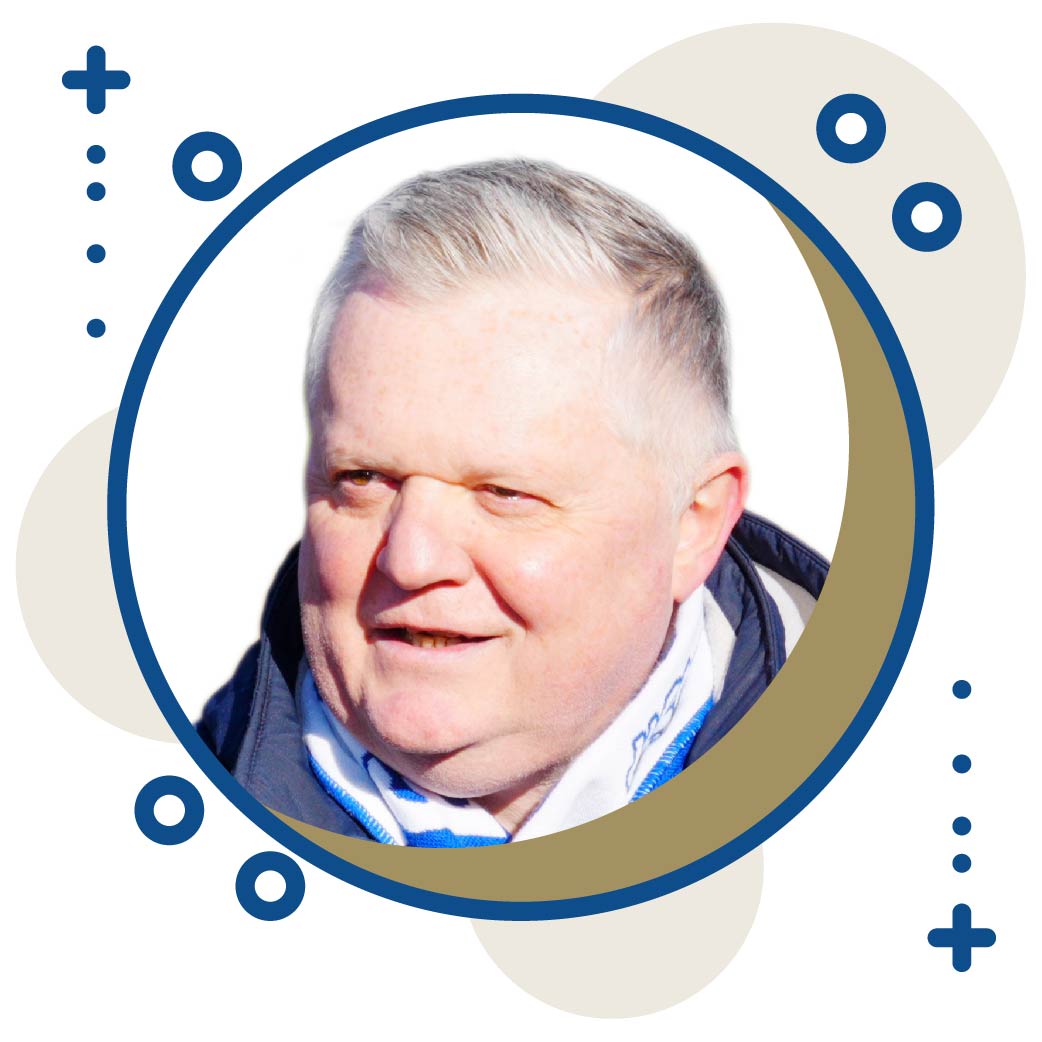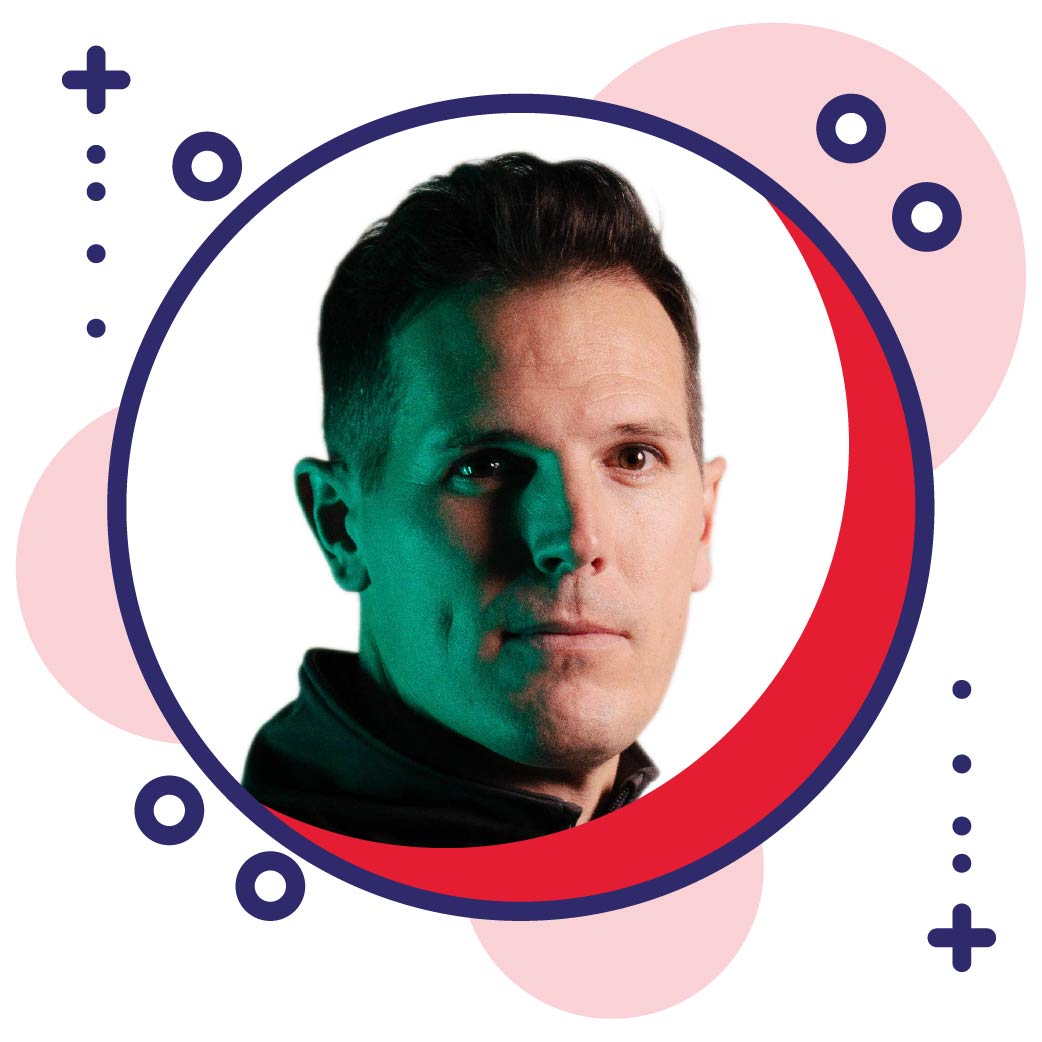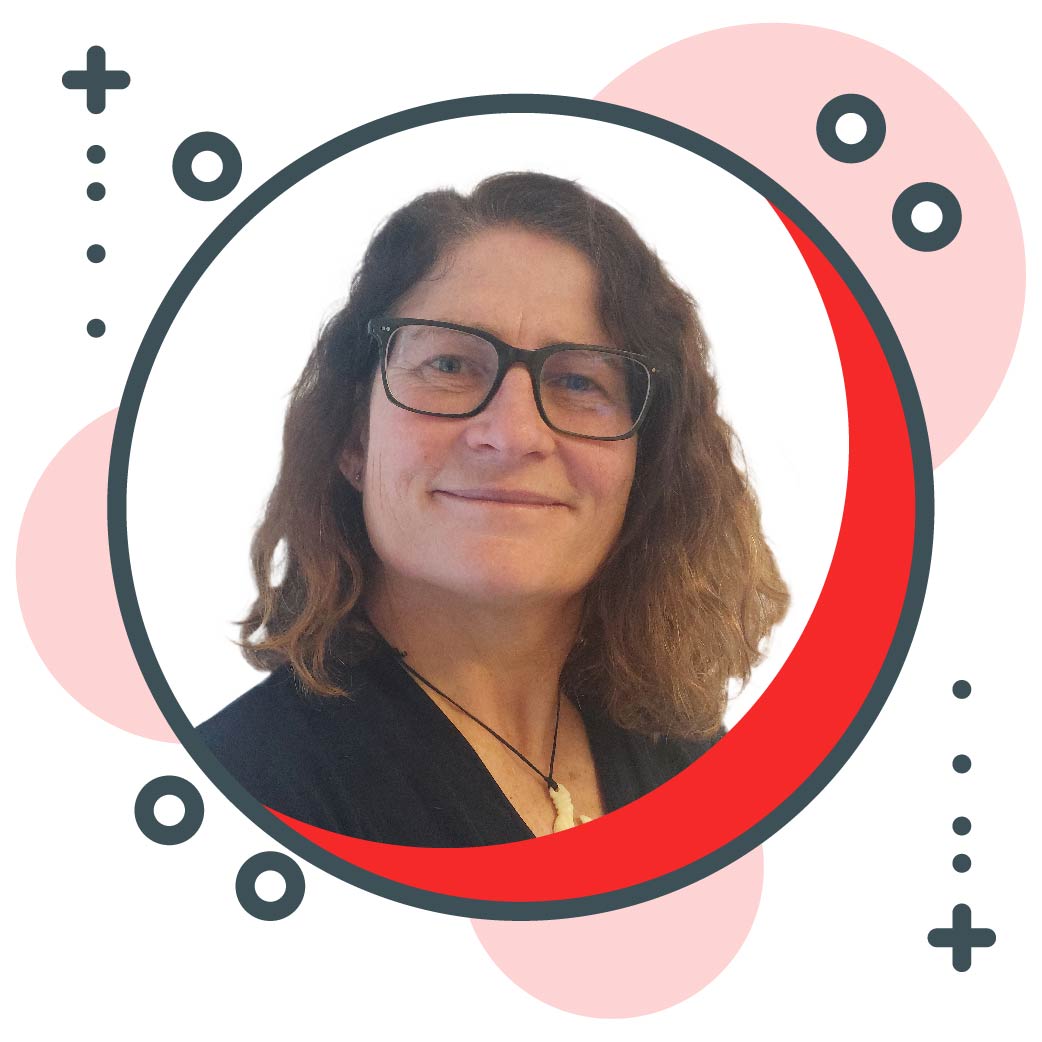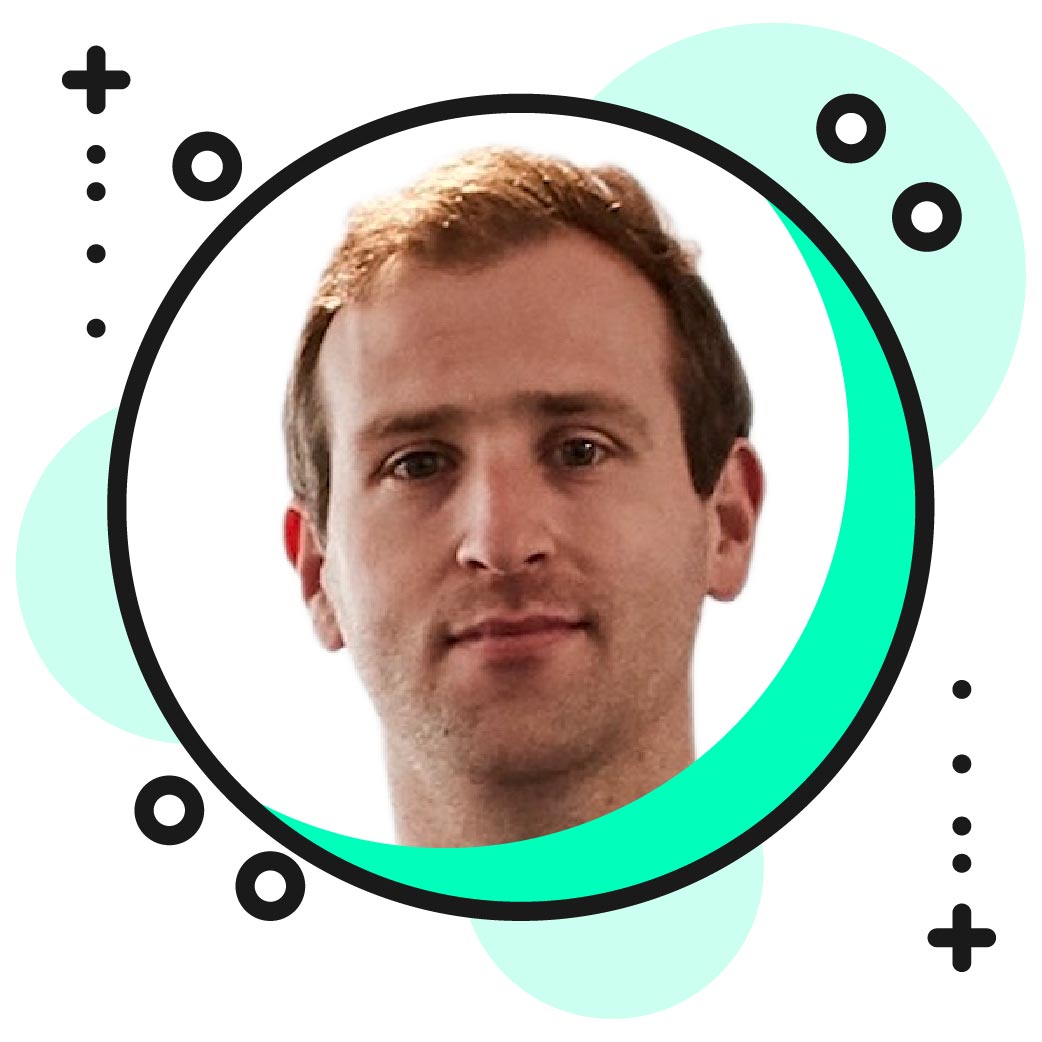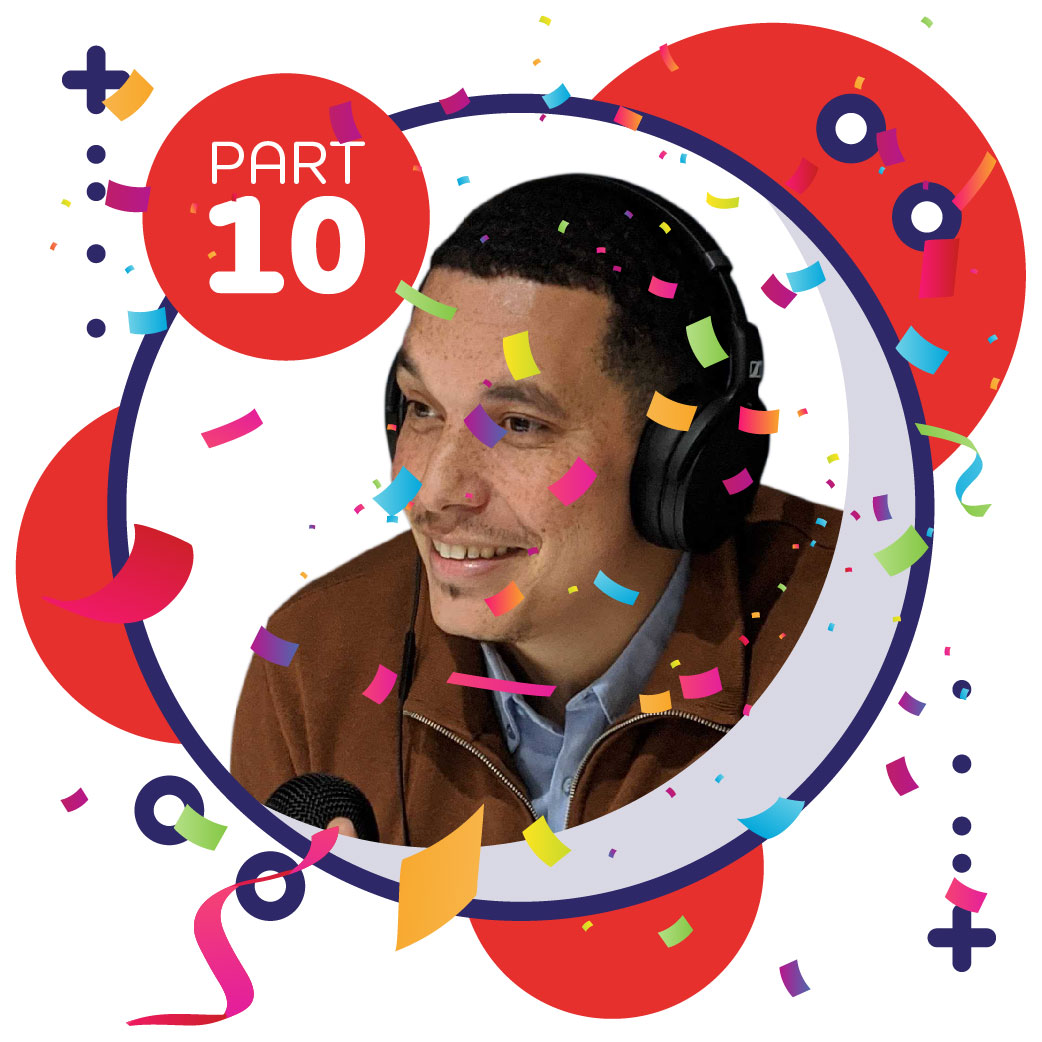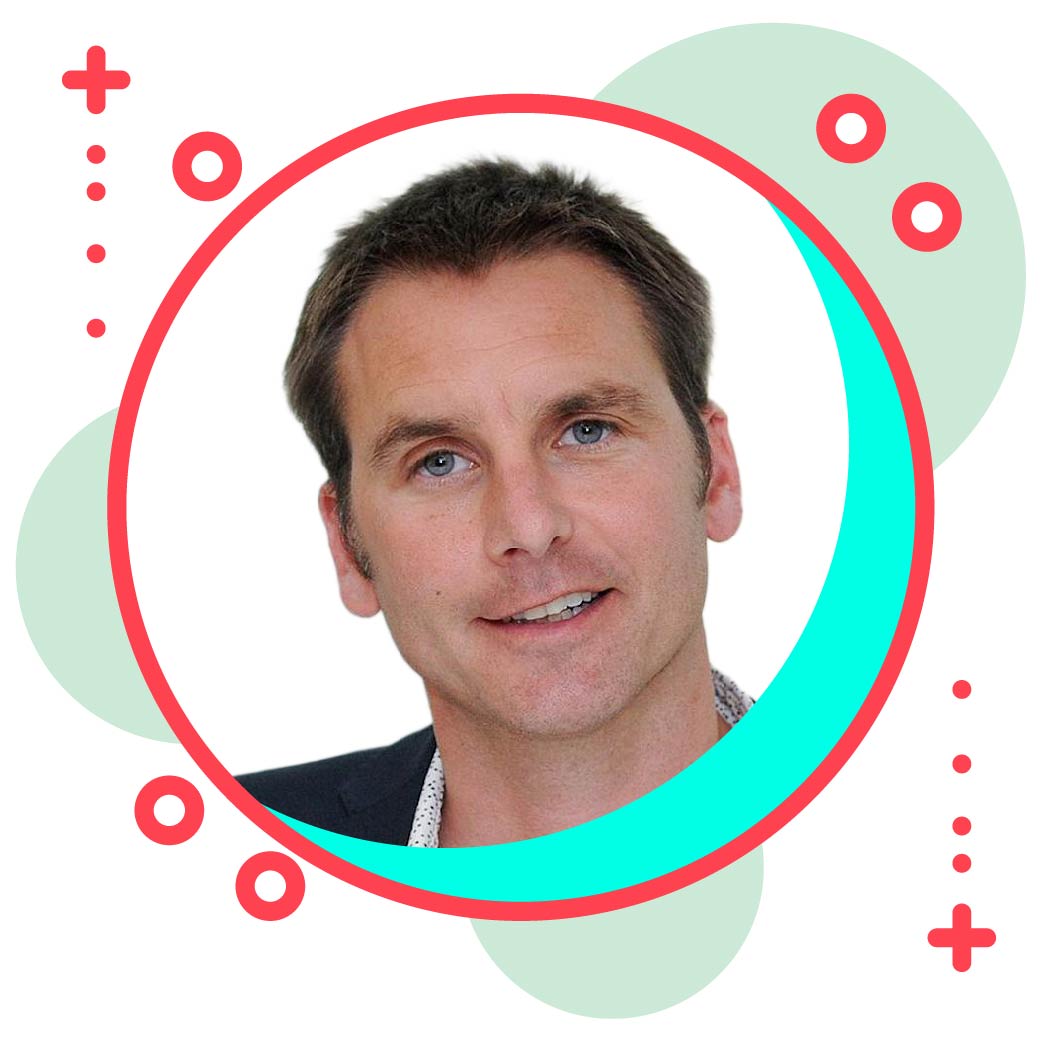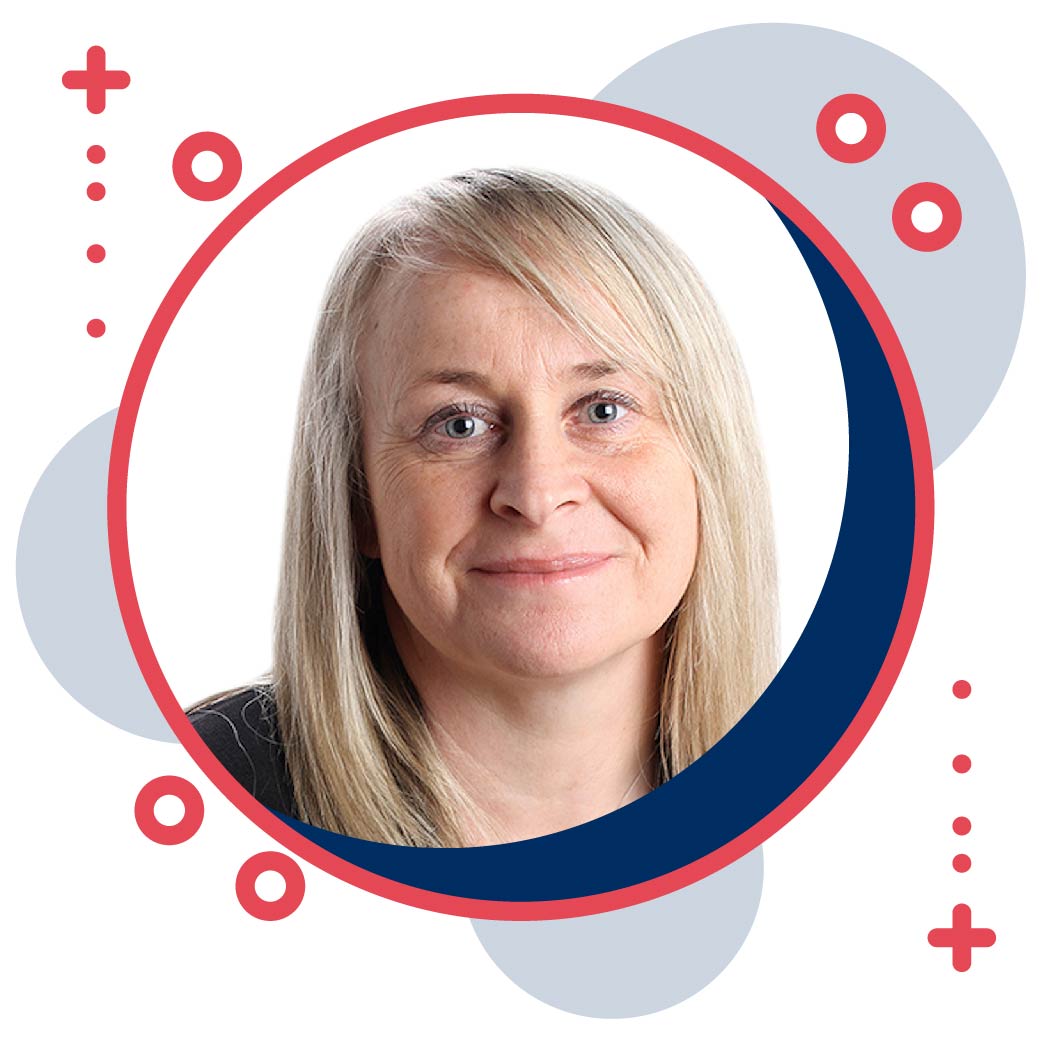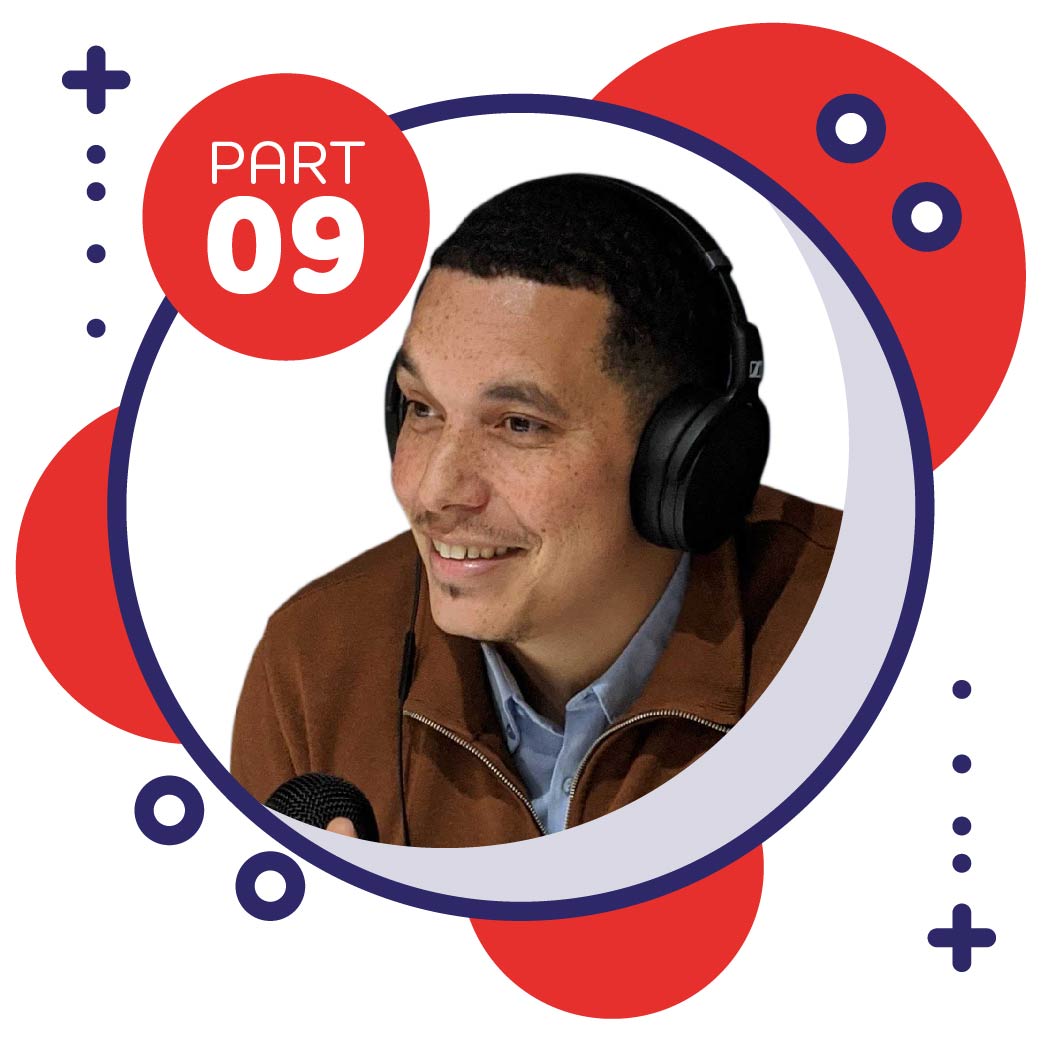Preeti Shetty 0:00
Where is your data going? What is it telling you? How is it informing future decision making? What do you know about your beneficiaries? I think that is something the sector has been a little bit slow to embrace.
James Moore 0:20
From Coordinate Sport, it’s the Drive Phase. A show about sports founders, leaders and experts, and the stories behind their business journeys. Our guest on this episode is Preeti Shetty. Preeti works at the forefront of data evaluation in sport and the third sector. She’s the head of Upshot, the Football Foundation’s award-winning M&E software tool. Preeti leads a team that now services over 850 partners across the world. In this episode, Preeti talks us through her early life growing up in Dubai, moving to the UK to study at university, and the journey from starting as a BBC intern to leading a global sports tech company. We hear her thoughts on the sports industry and the benefits of digital transformation for all sports organisations. We also touch on her thoughts about the current state of the industry regarding diversity in leadership and management roles. A great guest and an example of someone who really loves their job. Enjoy.
We’re delighted to welcome Preeti Shetty onto the podcast today. She’s the head of Upshot, an award-winning data evaluation tool created by the football foundation. Preeti works with over 850 partners to showcase the impact their programs are making in the community. Also, she was named sport industry next-gen leader in 2016, so we might touch on that later on. Welcome to the podcast.
Preeti Shetty 1:52
Thanks, it’s great to be here.
James Moore 1:54
Brilliant. Usually, we kick-off by just getting to know our guests better, a little bit about your early life. So how would you describe your childhood if you were to give us a bit of a rundown?
Preeti Shetty 2:05
I had a really great childhood. I was born and grew up in Dubai to Indian parents. When I was growing up, Dubai was very different to how it is now. It’s completely transformed. It used to be a little bit of a desert. It was very small, with very few tourists. Those of us that grew up there, you hung out with people from similar backgrounds. Everybody knew everybody. It was a really nice, safe place to grow up. There was a lot of playing on the streets in the winter because it was too hot in the summer. But what I loved about it is it was an extremely international outlook. Dubai is a transit country. It was full of immigrants, and it was built by immigrants. So when we were growing up, everybody spoke a different language and came from a different country. All of our parents moved there to try and make a better life. So you had this sense of internationality, which I think made us curious and made us extremely open to other cultures, religions, other races.
James Moore 3:20
Definitely. You mentioned there your parents moved there for a better life, what did they do? A lot of times if they’re first-generation, they might have set up a business or something like that. We’re talking entrepreneurship.
Preeti Shetty 3:30
That’s exactly what they did. My dad worked in construction, which is why everybody moved to Dubai. So he started his own business, and my mum worked in a bank. She’s an economist and worked in a bank for her whole life. She helped my dad build up his business, which at the time was a great thing to do because Dubai was booming. Towards the end of the crash, it was a very different story obviously, because having your own construction business in Dubai in 2008 was terrible. But when I was a kid, it was a great place to be. And for them, I think it was a real chance to try something for themselves. They were quite young, about 20 when they moved to Dubai. So yeah, I think it was a big leap for them.
James Moore 4:23
Yeah, definitely. What was school life like in Dubai? Because I’m not sure if it was like that back then, but the facilities in the schools over there are amazing. What was that like growing up, and what was your first experience of sports or PE?
Preeti Shetty 4:43
Well, the facilities were nice, but they definitely weren’t this nice. It was a lot of open fields and open courts. But also the weather played a big role because it was so hot in the summer, we couldn’t do sport outside. So it was very seasonal our sport. I was on my school basketball team, which is funny because I’m really short, but at the time I was the same height as everybody else. But because it was so hot, we had to do training at 5:30 in the morning, because that was the only time we could. At 8:00, it started to get really hot and we couldn’t be outside. So I remember my mum having to wake up at four, and she’d drive me to school so I could do my hour and a half of training, and then she’d go to work. It’s crazy when you think of the sacrifices parents make to facilitate things their kids want to do. But for me, I think that was my first experience of sport. We had PE, but if you didn’t join a team, you didn’t really do much sport. For me, I really enjoyed it. When I was little, I was on lots of teams, and I enjoyed that team environment. Interestingly, as I got older, I realised I wasn’t very good at sport. I always use the basketball one as an example. We got to a point in the team where the coach realised I wasn’t very good. But I think he realised it was important for my self-esteem and my social environment. So he gave me this team manager position, that now when I look back I realise it wasn’t a thing, he invented something for me to boost my morale. So I would do the team talks and lead some of the training. Now I realise it’s because he was trying to say, I can’t let you play because you’re not very good, but I don’t want to kick you out because I know this is important to you. So I got to go to all the games and feel like part of that team anyway. I don’t know if that would fly anymore. It’s too competitive. I think if that were to happen now, other kids would be thinking, what’s going on? But I had a great relationship with my coach, and it allowed me to build this network that gave me something outside of class.
James Moore 4:45
Definitely, I think that will resonate with many coaches out there, especially community coaches or guys delivering PE regularly. They’ve got that third of the class who aren’t super sporty or not quite interested, and you need to engage them. Also, it speaks to those transferable skills and leadership skills.
Preeti Shetty 7:30
Absolutely, and I think it’s such an important life lesson because it’s such a crucial age. At that point, if he had said, you’re not good enough, so you can’t come anymore, I think I would have ended up not liking sport. Because it’s rejection, and it’s a horrible feeling. Because that didn’t happen, although I ended up not playing very much, I was still there. I was still running, still engaged, still watching every sport. I think it gave me that love for sport that I wouldn’t have had otherwise. As a coach, parent, or volunteer, you look around, and you see these kids who aren’t necessarily engaged. I think it’s because we often say it’s not fun unless you’re good at it. You can’t do anything unless you’re good at it. But I’ve ended up working in sport, and I’ve never been good at it.
James Moore 8:36
Yeah, I could talk about it for hours. That’s your first impression, so if you had a bad experience, it could switch you off for life. Or like that coach you had, it can really ignite something. So maybe you won’t be taking sports to the elite level, but you’re going to be active and participating. That’s something everyone’s trying to do to combat all these challenges we’re facing in society, people being inactive, etc. So some great insights there. Leaving school, you moved over to the UK?
Preeti Shetty 9:16
Yeah, exactly. So after I finished high school, I did a gap year in Belgium, and then I was trying to figure out what I wanted to do. I had family in Belgium, so I spent a year there and then came here for university. The plan was very much three years, do my undergrad, and then leave. Not necessarily go back home, but go somewhere else. Again it was one of those cases where I wasn’t sure what I wanted to do. I thought I wanted to work in TV production interestingly, so I went to Goldsmith’s, and my undergrad was media comms which involved a lot of TV and radio production. In my head, I thought this is interesting, and I’ll enjoy this. That’s what I thought I wanted to do. I think it’s also interesting that we make young people decide their career choices at 18. How do you know when you’ve never done anything? So you pick something, and often you stick with it.
James Moore 10:19
Media comms, the degree sounds quite technical. So maybe that might have helped in terms of moving into the field you moved into?
Preeti Shetty 10:26
I guess through my career, there are skills in there that I have used. I think whatever job you’re in, comms is quite a helpful thing. So I’ve definitely used those skills, but I think the direction I thought I was going into was quite technical, and it was very production focused. Which obviously I’ve never used again. Though it did help me get into sport and into my first ever job, so I’ll always be grateful for it.
James Moore 10:56
Did you move into the BBC straight from university? I know that when the Your Game project came up, I resonated with you. I remember back around 2010-2011, the roadshow came around my local area, with 1Xtra and a lot of coaching and young people from the streets getting involved to kind of those events. So were you behind all that, or what was your role?
Preeti Shetty 11:20
I was definitely there yeah.
James Moore 11:22
You must have been there with a headset on running around.
Preeti Shetty 11:25
It’s funny how things happen. For me, this whole thing was a complete accident. I was doing my media and comms degree, and I thought I wanted to work in TV, so I applied for a few internships. I applied for a position at the BBC because I wanted to work in TV production. That was the logic. I happened to get an internship at BBC Sport for their outreach project called BBC Your Game. I knew nothing about Your Game, I liked sport as we’ve talked about before, but I didn’t think I wanted to work in sport. I took that internship because it was television and because it was the BBC. It was a four-week internship, and I got to know these incredible people that I still know really well and be a part of this incredible project. So BBC Your Game, as you said, was a bit of a roadshow. We went around the UK, engaging young people not in education or employment through a football, media, and music festival. It was all about coming to play in these tournaments. We had lots of partners such as Positive Futures and the Football Foundation, which is how I got to know them. We’d go around the cities, engaging young people to come and play the game. But also, it was to see what else was out there, the employment and training opportunities. So I helped do lots of logistics, and at the end of the four weeks, the BBC had a rule that after your internship, they either hired you, or you left. I was still doing my final year at uni, and they employed me, which was fantastic. So I finished out my last year while working at Your Game, and I think this was 2008. For me, it was an extraordinary experience. I had done summer work, but I hadn’t had this kind of responsibility before. It was a small team, and I was the partnership coordinator. It gave me this incredible insight into what sport can do and the power of sport. The team was fantastic, and my boss at the time was incredible. They very much allowed me to take responsibility and try new things. I’ll never forget there was a meeting with the Football Foundation that was quite a big meeting. My boss couldn’t go, so he asked me if I wanted to go and lead the meeting. So I did, and it went really well. I remember walking out of the room, and all my colleagues were applauding, and I think it’s that atmosphere. Everyone was like, that’s amazing. You lead a really big meeting, and you should be proud. Plus, it was with the Football Foundation, which is a really credible organisation. I think it’s the little things like that. They give you confidence and make you realise I can do this. But also, it was a real insight into a job, role, and sector that I didn’t really know existed. I thought with sport, you work at a club, and that’s your only option. Or there’s TV, like with BBC Sport. When I was at the BBC, I explored commentating, going to the studio, and looking at all of those things. They gave me those opportunities, but for me, what really stuck is that sport has the power to engage young people like nothing else. To provide opportunities and pathways to change, mould, and shape communities. That was the point I decided I wasn’t going to do anything else again, and I’ve never done anything else again. I know it doesn’t happen to everybody, but for me, it was like fate.
James Moore 15:13
I remember it having such a huge impact. There’s a lot of engagement from those tournament-based events where everyone puts their communities teams together. It got the young people locally involved. I guess this will lead us on to Upshot, but in terms of measuring the impact from something like that, that’s just a one-off event. Obviously, there’s a lot of investment into it, and it has a great production value, but afterwards, being able to measure that impact is really important. I don’t know if that was difficult, especially if you’re doing a roadshow or working with partners. How was that, because it brings that short term engagement, but then can you measure that impact after?
Preeti Shetty 15:56
Maybe this is because I was very junior, and these conversations were happening above my head, and I wasn’t aware, but I don’t know if the impact was at the forefront of what anybody was thinking. At least not in the way we talk about it now. I think it was more about engaging lots of people. We had 1000s of kids turning up, they had a good time, and we could see that. The partnerships would tell us that they had better engagement with their young people or people coming to see them after. Wonderful stories were coming out of it, which I think is a really common thing in sport. We heard stories of young people that went onto volunteer with these organisations or ended up getting off the streets and getting jobs. How much of that can we attribute to a one-day event? I don’t know, but now I would have an opinion on it. I think this is very reminiscent of where grassroots sport was, but at the time, I don’t think there was that much pressure to understand the impact. People were just happy that 1000 kids turned up, we got some good photos, and everyone had a good time. I think that was enough. That’s not to say that it didn’t have an impact. With event-based stuff, it doesn’t mean you can’t have impact. It just means you need to be tracking your young people, in the work you do in your partnerships, much more long term. Now if I was to evaluate Your Game’s impact now, I would make sure that our partners were collecting data on what happens with those young people. Do they go on to do things? We’d be doing pre and post surveys. We’d be understanding their attitudes and their confidence levels. That’s just not where sport was then, and I think numbers and stories were enough.
James Moore 17:50
Yeah, definitely. If you have that data, that’s going to drive the insights that lead to the next round of investment. So that leads us onto Upshot. I know you went through other roles before arriving at Upshot, but we’re tight on time, and I want to look at the origin of that. We talked about the issue that was there 10 – 12 years ago. What led to the Football Foundation developing Upshot? I don’t know if you were involved right from the start, or was it already in development when you got involved?
Preeti Shetty 18:25
Again, really fortuitous. I met the Foundation at Your Game, and I kept in touch with some of them. So they were always on my radar. Interestingly, I applied for other jobs at the Foundation that I didn’t get over the years. But I then went on to do a master’s in sports management and the business of football, which focused on impact, research methods, and evaluation. I was freelance at the time, working for lots of football for development organisations and NGOs, and I was already at the point where I realised that impact was an issue. NGOs, clubs, and community groups weren’t able to collect good data and understand their impact. I ended up writing my dissertation on comparing, monitoring and evaluating tools in the sport for development sector. Very boring. Nobody would read it other than me.
James Moore 18:27
I’ve actually got a copy of it and had a read through, just joking.
Preeti Shetty 18:43
As I was doing my dissertation, I had heard that the Foundation was building Upshot. So they started Upshot the year before I started. I already had connections there, so I reached out to the Foundation and said this is what I’m writing my dissertation on. Can I get a sneak peek so I can understand the drivers behind it? So I was very lucky, and the year that they were developing it, I spent researching it. I had this inside access to the Foundation while they were doing it, which was very lucky. I then went on to write my dissertation, and I graduated. Then a friend of mine sent me this job listing in Upshot at the Foundation. The position was called Sales and Implementation Consultant, which is a horrible title. So they sent it to me and said, isn’t this what you wrote your dissertation on? You should apply. While I was interested in M&E and impact, at the time, Upshot was marketed very much as a tech thing, and the role was sales which I wasn’t really interested in. I think I waited until the hour before the deadline and just decided I had nothing to lose. I applied, and I got an interview, which was hilarious. It was a two and a half-hour interview with my old boss. They asked what sales experience do I have, to which I replied none. Then they asked what software experience do I have, and again I said none. So they were like, why are you here? I explained I had just spent a year researching what they were doing and what the market was doing. So while I don’t have any of this experience, but I know why people need it. I also know everything about you and all your competitors, it puts me in a really good position to do this. I finished the interview, and I got a call pretty much immediately. They said we don’t think you’re right for this role, and I was thinking okay, thanks for that. They continued to say we’ve hired someone who is, and I thought, wow, this is a horrible phone call. Then they said we hired somebody who we think is a good fit for the role, but we think you’re great, and actually, you do know everything about this. So we’d like to hire you too, and we’ll figure out what your role will be. So they hired two of us, and this was around the end of 2012, I want to say, and Upshot launched in 2012. So it was pretty much the beginning. It was fantastic for the Foundation. The whole purpose of building Upshot was to try and understand the impact that they were having. As the UK’s largest sports charity, the Foundation was giving all this money away to clubs and community groups. The reports they got back would say how many kids were engaged and what the Foundation was trying to get out of it. But so what? What has happened because you’ve done that, and how can you explain that to me? How can we be more outcomes-focused? So for the Foundation at the time, the driver was really trying to understand that question. But also a recognition that as a funder, you can’t turn around to a small club or community group and say I want real-time data. I want it every three weeks, and I want you to do 10 case studies and two surveys. Nobody has that kind of resource or that knowledge. The real driver behind Upshot was, why don’t we build something? Let’s move away from paper and move away from Excel. Why don’t we build something that we can give to our grantees that they can use to make it easier for them to get this information? The information is in real-time, and we don’t need to do an annual report anymore. We can then start to look at this and say, okay, we’re struggling here. Is this project failing, is this project doing well? Then we can intervene when it’s successful. Because I think something that people forget is no funder wants a project to fail. It’s in everybody’s interest that a project succeeds. The issue is people are too scared to tell their funders it’s not working because they think they’ll pull funding. But if they tell me two months in this isn’t working the way we thought, we can sit down and have a conversation and ask what do they need? A bit more marketing, more money, more resource? Because in the long run, you’re saving me money by fixing this now, rather than a year down the line telling me, by the way, nobody came, and it didn’t work.
James Moore 24:05
Yeah, exactly. So you’ve had huge success across the UK, and I’m assuming it was football-focused initially, but what other sectors do you work with now? Because I know you’re working with over 850 organisations now.
Preeti Shetty 24:23
The growth has been really organic. I think the intention when we started was let’s work with our grantees, which we did. The first-ever program we got on Upshot was Barclays Spaces for Sport. We quickly realised that this isn’t a football issue, and actually, this isn’t even a sport issue. Anybody delivering a community intervention is struggling with collecting data. Understanding what to measure, reporting to their stakeholders, or telling their story. These things are a common thread with community organisations. So we started reaching out to people we know and then grew as somebody would tell somebody else. So we’re just over 850 organisations right now, and probably 87% of our business comes from referrals from existing clients. It’s such an insane number, but it’s because of that referral system. We love that because it means we’re doing a good job, and it means people want to work with us. They think Upshot’s good. But what’s been interesting, with this growth, is the sectors have just kind of grown. So we do bits of work with football, but we also work with Rugby League clubs, Premiership Rugby Club, County Cricket Boards, and Boxing. We work with small community organisations that deliver multi-sport, dance, and yoga. But actually, we do more than sport. We work with local authorities, with the criminal justice system, and we work in education with schools, colleges, and universities. So it’s really diverse, and the beauty of this diversity is we’re learning every day. So one day we’re sitting with a man who’s delivering woodworking sessions to his local community from his shed, and the next day we’re at a National Governing Body. What’s interesting about it is each sector has its challenges, and each has its own innovations. We get to see that, and we get to take it from one sector to the other. Like that’s interesting you said that, do you know what tennis is doing? Or have you heard what Universities are doing? Or do you know what the National Autistic Society is doing? It’s being able to do this cross-sector learning that I don’t think you get otherwise. We can then transfer some of this not only onto Upshot but also to deliver training and capacity building with these organisations.
James Moore 24:38
You mentioned development there, and Coordinate Sport actually launched at a similar time to you, between 2011 – 2012. The talk about referrals resonates with us because sales and marketing is something we only started dipping our toe in over the last couple of years. Everything is more referral-based when you’ve got a good product that’s working. What does Upshot look like now compared to what it looked like in 2012? Our product was terrible compared to what it is, so what are your thoughts on how far you’ve travelled?
Preeti Shetty 28:05
We have people and clients that have been around from the start, and I think they see the difference. We have been very careful. We don’t actually do versions. We’ve iterated very slowly and organically throughout this journey. So there is nothing on Upshot that existed in 2012 that doesn’t exist now. We’ve just made it all better. It’s very different in that there are lots of new things from when we first started. To give you an example, we have a survey feature within Upshot. We thought nobody would use it, as there are better survey functions out there like Survey Monkey. It turns out it’s one of our most popular features, so we’ve continued to build and improve that over the years. For us, our driver with product development is we are user lead. So we’re constantly asking our users what they think, and they’re telling us what they want. We’re obviously also driven by the Foundation, the Premier League, the FA, and Sport England as our funding partners. It’s either coming from the top from our funding partners or the ground, from the organisations. Again that’s how we develop, and that’s how we build. What that means for us is every couple of years we introduce one big feature maybe, but usually, it’s lots of little things. It’s usually a small bug fix there, a small amendment here. I’ve talked to you about this before, so I know you’re the same, but we’re never going to be everything for everybody. Upshot is not the answer to everybody’s problems in the sector. We do our bit well, and then we signpost, link, or integrate with people who do other things. I think there is a risk where organisations think they’ll get that one system that it’ll do everything, and then they get upset when the system doesn’t do everything. That’s not how this works, and if it did, I think we’d do everything in a mediocre way, as opposed to doing one thing fantastically.
James Moore 30:36
I know you’ll have a few strategic plans in place, although I’m assuming that everything that’s happened this year wasn’t in the strategic plan when you wrote it before. So I guess it might shift and change, but we feel like the industry is coming back as strong as ever. The demands are always going to be there. So looking forward to Upshot, what does the roadmap look like for the next 5 – 10 years?
Preeti Shetty 31:01
Interestingly, I think for us it was an important realisation. Of course, our organisations struggled, but they also adapted. It also gave many organisations the time to stop and think about impact, what they want to do, and diversifying their income. Things that you’re usually so busy with day to day you don’t get time to do. So we’ve been busier this year than we’ve ever been before, and we’ve been getting emails from people that we talked to two years ago who would say we’re finally ready to do this because we have some time. That, I think. is what’s driving our next five-year strategy. It’s a recognition that impact isn’t going anywhere. It’s never been more important for you to collect good data, understand what it means, feed through the voice of your beneficiary, and evidence your impact. These things aren’t going away. We are looking at how we scale, grow, and support bigger sections of our sectors, but in a way that we don’t lose quality. My team’s favourite thing is that we know the names of all 850 organisations that we work with. We’re a small business, and we do free support. So when somebody has a problem they call us. We’re a bit like your outsourced M&E team, and we don’t want to lose that. So I think yes, we want to grow and scale, but we want to keep this ethos that we’ve always had. Upshot has never been profit-making. Any money that we make, we reinvest back in, or we give to the Foundation. We don’t want to lose that feeling, and I think that’s really important to us. When we’re looking at growth, we’re doing a lot of international at the moment. We’re working with lots of non-sport organisations, we’re doing quite a lot of government work, and that’s great. But how do we do it without losing our grassroots ethos of understanding that we want to help organisations do what they do better? But also, I think profit and purpose are not mutually exclusive. Nobody is saying that you can’t be a successful business and make money, but also do good at the same time. I think for us over the next five years, how do we balance profit and purpose well?
James Moore 33:34
Definitely, I think for you especially, because it’s so transferable, the requirement for evidence and that impact. You have to think, we could help everyone and you have to rein that in a little bit.
Preeti Shetty 33:49
You have to learn to say no, right? It’s so hard, but sometimes we’re not a good fit. Sometimes it’s not Upshot. It’s something else. It’s taken us a long time as a team to say this isn’t going to work, or we don’t have time to do this. I think those are hard decisions you make as a small business, that’s moving to a medium-sized business, realising that you can’t just say yes to everybody.
James Moore 34:20
I’m interested to pick your brains on the sports aspect. For me, this digital transformation is key. And we just touched on it there with the pandemic and issues we’ve been facing. If you’re still running things on paper, you might find it difficult to react like many of your partners were doing. What’s your experience working within the sector from when you started to now, or things you’ve experienced with charitable organisations or commercial providers?
Preeti Shetty 34:55
We’ve come a long way. The third sector, in general, has come a long way. When I first started, I would talk about the impact of data, and either people weren’t interested or were a bit scared by it. Back then, digital meant a website and social. And that’s not the digital I’m talking about. Those are very important things, but I think most organisations are quite comfortable with having a website and doing social, that is not the issue. When we talk about digital transformation it’s your systems, your data. What we’re talking about here is what are the efficiencies operationally that you can have from where you start to when you finish? Where is your data going? What is it telling you? How is it informing future decision making? What do you know about your beneficiaries? I think that is something the sector has been a little bit slow to embrace. This might be a little bit of a stereotype, with sports especially but also non-sport, it is mostly volunteer lead. Coaches love what they do, but they don’t like admin. They don’t like systems. Understandably they don’t want to waste valuable delivery time by going and recording loads of notes, which I understand. I think they’ve been a little bit slow to embrace it. There is still lots of work. When people ask who’s my biggest competitor, I always say it’s Excel, without a doubt. Excel is fantastic, and I’m not saying you should move away from Excel. But I think it’s understanding where you are in your organisation’s journey. I don’t consider myself a tech person. Yeah, I happen to run a tech business, but for me, tech should help us make our lives easier. There are hundreds of things that technology can do, and if it can do it, why would I waste my time trying to do it manually or doing it on Excel? So I think it’s changing, and charities have recognised that we need to embrace digital a lot more. Some things can give us time and can help us do things a lot quicker. I think impact, the sector has got. So much so that it’s become a buzzword, and that’s my concern with this. Every charity seems to have a job going for head of digital transformation. What does that mean? I don’t think the solution is to hire a person to come and fix everything for you.
James Moore 37:43
Because if you’re trying to save people time, then it should be the team that’s already there, right? The system, solving that problem. So it doesn’t mean you only need to bring in the tech guy to solve it. It may be a culture change.
Preeti Shetty 37:57
That’s the word. It’s culture change. Whether you do it by hiring somebody or with your internal team. The fact of the matter is it’s not one person’s job. As an organisation, is your culture data-driven, insight lead? Is it tech-focused? Those things don’t mean you have six systems. It means the way you think as an organisation is putting those things first. It’s saying I’m not going to make big decisions until I look at what the data is telling me. I’m not going to create new programs until I get feedback from my beneficiaries. It’s systems thinking. These things are not necessarily linked to a product. It’s how you deal with the people you work with. I think we’re getting there, but my concern is will this become a tick box exercise? Yes, I have impact. Do you know what I mean? It’s not a one-time thing.
James Moore 38:57
Yeah, for sure. Touching on that around wasting time, that’s a big one that I always focus on. Someone has to see the value in that product. That means the coaches don’t have to be filling out paper registers, and they can provide more value out in the field. But also there’s the senior manager who used to be dumped with that big stack of paperwork. Yet for the charity, they’re probably one of the most expensive resources, the person who can generate the most growth or impact out in the field. But they’re doing the admin. So if someone sees the value in the system, then they’re going to be on board. Moving on to look at the industry as a whole, I don’t know whether you have any of these, but we always ask about any myths around the sport industry. Have you got any misconceptions that you don’t like, something that pushes your buttons?
Preeti Shetty 40:04
From the outside, there is this perception that sport has a lot of money, and it does. Therefore, what’s the problem? Footballers are paid so much money, so why are you complaining about grassroots sport? I think that pushes my buttons. I think from the outside people don’t know how much good work goes on in sport. There is a phenomenal amount of community work that happens at every level of the game. I think we’ve seen it so clearly during the pandemic. Football clubs became shelters, and they delivered food aid. I think people don’t see the value of what sport actually does in the community. There’s this perception of what happens at the highest level, and the lowest level of the game. I do lots of talks for university sport courses, and there’s quite a lot of international students there. When I tell them, they’re always like we didn’t know all of that happens. We didn’t know that the Premier League gives money towards this thing. Or this tiny club does all these things in their community for the elderly, people with disabilities, or the BAME community. I hate that term, but I think for me that perception I’d quite like to change. Because then when one individual, like Marcus Rashford, or Sterling does something that becomes really big, everyone treats them as the exception. Not to take that away from them, but I don’t think they’re the exception. There is a lot of good that happens in our community and our sector. The outside world just doesn’t necessarily know about it because the negative stories outweigh the positive sometimes.
James Moore 42:07
Yeah, especially with football, as the profile is so huge with Premier League, it can be difficult to get more headlines. But I totally agree on that one. You touched a little bit there on diversity. A couple of us are sitting here now as part of the BAME community, leading businesses and running organisations. From when you started in the industry to now, how has it been for you in terms of the leadership positions, and senior management roles? Hopefully, there’s been some progress.
Preeti Shetty 42:47
We could do a whole other podcast on this.
James Moore 42:51
Yeah, a part two just on this.
Preeti Shetty 42:52
It’s a hard one. Have I seen distance travelled? In some sense. Do I think it’s far enough? Absolutely not. I think the last year has just brought it to the surface. It’s a journey that started in 2016 with Brexit, which brought to the surface these opinions and the issues that we have in our sector when it comes to diversity. I think there has been some progress in terms of the UK governance code, but there’s still a long way to go. I think we’re missing the intersectionality. There’s lots of stuff around women, but what about black women?
James Moore 43:35
I guess that’s why you don’t like the term BAME because it lumps everyone into the same pot?
Preeti Shetty 43:40
Yes, and it’s doing us a disservice by lumping us all into the same pot. Because it’s really easy to look at this and say that’s fine, I’ve got four Asians. But they have no black people. Do you see what I mean? What they’re doing is pitting us against each other, and that’s the last thing we need. Also, we’re not necessarily the minority globally. I think many people are looking at boards. There’s not enough diversity on boards. There are hundreds of programs, and I think this is everybody’s solution. Let’s start a leadership program to get more people of colour on boards, more women on boards. I don’t think it’s about just the courses. There also need to be opportunities. There are 100s of people that have been on courses, so why are they still not getting the jobs? For me, it’s the exec, its senior management and middle management. That’s where we need the diversity because they are the ones that are not moving up. We don’t publish this data, and I’ve been trying to look at it for ages. Where is the data on employee makeup of sport organisations in the UK? We can’t see it, and therefore I think that’s the level we need to focus on. It’s more than unconscious bias. There needs to be positive action. You can send people on courses, but at the end of the day, if your interview panel is white males and over 50, odds are I’m probably not getting this job. That’s not because they’re all racist. The problem is with the system. Not enough people are getting through, and if we’re not representative of the communities that we live and work in, we have a problem. All we’re trying to be a representative of the communities that you live and work in. Nothing more, nothing less.
James Moore 43:41
100%, I echo all those sentiments. My next question is, how does a general day look for you? I know you are back to back all the time with meetings. What does your daily routine look like? Obviously, at the moment, a lot of Zoom meetings, I’m assuming.
Preeti Shetty 46:15
Yeah, I tend to cram my days in, so it’s usually back to back all day. That frustrates me, because when am I supposed to do the work that comes off the back of the conversations? My days are all very different, and that’s what I love about it. My team and I do such varied work. One day I might be doing a demonstration of the Upshot system, and the next day I’m delivering a capacity building workshop on the importance of impact measurement. The next day I’m travelling to Hull to deliver training on the system, then the next day, I could be in the US doing a conference, and that’s what I love about it. Every day is different, and it means we work hard, and we push ourselves. But we genuinely love the organisations that we work with. I love that all my conversations are with different people at different levels of organisations of varying sizes. I used to do a lot of travel pre COVID, and obviously, I’m not doing that anymore. Actually, I quite like it, because I think there was a realisation that we could have done a lot of this on Zoom, we didn’t really need to go somewhere for a one-hour meeting.
James Moore 47:42
So do you have any habits that you use to be able to stay on top of everything? Stress relievers, maybe.
Preeti Shetty 47:50
I have lots of things that I’d like to do, and I don’t do. I should be more organised and make these lists, but I’m not. I’m a little bit last minute with everything. I think what keeps me sane is that I would talk about this for fun, which is annoying for my friends and family. Because I do talk about it for fun, and they’re like, is this really what we’re talking about again, on a Friday evening? But I love it, of course, some days are horrible. For example, currently, my day to day is filling out insurance paperwork. But everybody has days like that, but for the most part, I genuinely love what I do, and I genuinely love the organisations I work with. I feel a sense of purpose, and that keeps me going even when things are crazy. Not everybody is lucky enough to have a job they love 100% of the time or even 10%. I think you find the bits within it that give you joy and gives you purpose. You balance that out, and you focus on what am I doing for my community? But also, what am I doing for myself? Because it’s really important to do stuff for you. What am I doing for my team? What am I doing for my clients? What am I doing for my community? You need to find a little in between of that Venn diagram that’s your purpose.
James Moore 49:30
Love that. I’ve just got one more question. Well, there was so much more I wanted to talk to you about, but we’ve run out of time. The last question we ask everyone is if you could go back in time and talk to your 21-year-old self when you were just starting out in your career, what’s message would you give them?
Preeti Shetty 49:50
Great question. I try and be quite good at this, but I think everybody struggles with it. I think the message would be don’t be scared to try things. Don’t be scared to fail. People are so scared to do things, especially as they’re starting, and it’s easier to just take the safe option. I think for me in my career, I’ve never said no to anything. I always try, I take risks, and it’s always worked for me. When it hasn’t, and I have failed multiple times, that’s okay. You pick yourself up, you learn from it, and you try again. I wish I had started that earlier. At 21, I was playing things pretty safe, and I think that would be the advice I would give. Just try things, and don’t be worried about failing. Anything that happens to you that early in your life isn’t going to scar you. You will just learn from it.
James Moore 50:45
Fantastic, I really appreciate that. Thanks a lot for your time as well. I’ll let you get off to your next meeting.
Preeti Shetty 50:52
Speak to you soon, bye.
James Moore 50:57
Thank you for listening to this week’s show. You can subscribe anywhere you get your podcasts. If you’d like to get in touch with us, you can write to us at drivephase.podcast@coordinatecloud, tweet us @coordinatesport or follow us on Instagram @coordinate_sport or on my account @james_ventures. This episode was produced by Nancy Kwamboka, with support from Claire Goodchild and Lola Small. And a special thanks to Rochelle. I am James Moore, and you’ve been listening to the Drive Phase from Coordinate Sport.
